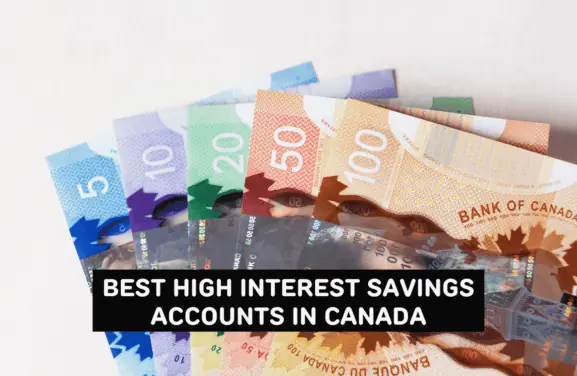Budgeting is one of the most crucial financial strategies for both individuals and businesses. Hence, if you want to improve your financial standing, you should know how to budget and can learn the ropes from some of the best books for budgeting and finance.
This article lists 15 of the best books on budgeting. Whether you’re just starting or have years of budgeting experience, you’ll find a book on this list that meets your financial literacy level.
Key Takeaways
- Some of the best books for budgeting and finance include ‘The Total Money Makeover’ by Dave Ramsey, ‘The One Page Financial Plan’ by Carl Richards, and ‘I Will Teach You To Be Rich’ by Ramit Sethi.
- Personal budgeting books improve your relationship with money, making it easier and faster to achieve your short or long-term financial goals.
Best Books For Budgeting And Finance
1. The Total Money Makeover by Dave Ramsey
One of the most comprehensive yet beginner-friendly books on saving money and budgeting is ‘The Total Money Makeover,’ written by well-known financial advisor Dave Ramsey in 2013.
Unlike other financial books that emphasize investing almost immediately, this book encourages readers to settle debt first and focus on their savings before venturing into growing their money.
If you want simple yet actionable steps for budgeting, ‘The Total Money Makeover’ is certainly one of your best options. It highlights the importance of knowing which expenses you should prioritize, allowing you to create a budget that works for you.
2. The One Page Financial Plan by Carl Richards
The book ‘The One Page Financial Plan’ encourages you to turn budgeting into an enjoyable game rather than a tedious chore.
Instead of only sticking to the budget you set, for example, this book suggests fulfilling little conscious challenges to cut your expenses, making the journey towards financial stability more manageable and rewarding.
‘The One Page Financial Plan’ embraces the reality that the future is inherently unpredictable. Therefore, as you explore this book, you will be encouraged to be flexible with your financial planning approach and not be too discouraged if you temporarily stray from your short or long-term goals.
3. I Will Teach You To Be Rich by Ramit Sethi
In just 6 weeks, you can have better control over your finances after reading this Wall Street Journal and New York Times bestseller. Unlike many other books, this book doesn’t discourage spending money on the things you love.
Rather, it guides you in crushing your debt, setting up high-interest bank accounts, and automating your finances so every dollar you have goes exactly where they need to be.
‘I Will Teach You To Be Rich’ also distinguishes itself through its comprehensive approach to real-life, actionable financial advice. This includes detailed scripts for scenarios such as negotiating a big raise at work and negotiating your way out of late fees.
4. How To Manage Your Money When You Don’t Have Any by Erin Wecks
Written specifically for those struggling to make ends meet, this book is undoubtedly one of the best personal budgeting books for individuals looking for a practical solution to achieving financial stability.
Instead of emphasizing building wealth, this book focuses on helping you avoid the pitfalls of modern consumerism. It encourages you to make the most of your current money rather than rely solely on your future financial prospects.
5. Your Money Or Your Life by Vicki Robin and Joe Dominguez
If you want to transform your relationship with money, ‘Your Money Or Your Life’ is one of the best personal budgeting books you should read.
Its main lesson is straightforward: live on less and retire early.
Hence, unlike books that encourage you to work harder or longer to increase your income, this piece encourages you to reconsider what you deem as “enough” so you can get the most of your “life energy” without trading away the majority of your life for money.
6. Spend Well, Live Rich by Michelle Singletary
Previously published as ‘7 Money Mantras,’ this book is another excellent source of financial tips for achieving more with your current money.
Michelle, the author of this piece, and her four siblings were raised by their mother, who earned less than $13,000 a year.
Hence, instead of suggesting that the key to financial stability is to earn more money, her book focuses on helping you spend wisely, avoid debt, and increase your savings even without increasing your salary.
7. You Need a Budget by Jesse Mecham
‘You Need a Budget’ summarizes budgeting by breaking it into four simple rules: giving every dollar a job, rolling with the punches, embracing your true expenses, and aging your money.
This very simplistic approach to financial accountability makes this piece one of the best budgeting books for young adults and teens who have no experience intentionally budgeting their money yet.
In fact, this book also contains chapters specifically catered for managing your family’s finances, including tips for teaching kids about budgeting and how to approach finances as a couple.
That said, if you’re looking for a budgeting book for the entire family, You Need A Budget will come in handy.
Related: YNAB Canada review.
8. Money Honey by Rachel Richards
If you’re not too fond of financial books that sound “too formal,” you’ll find ‘Money Honey’ by Rachel Richards to be a good, fun read. It breaks down the abstract concept of budgeting into 7 actionable steps while sounding like a money-savvy friend rather than a formal course instructor.
This book teaches you about student loan consolidations, credit-building tips, and how to properly compare the Annual Percentage Yields offered by various banks.
You’ll also be encouraged to separate your savings into 4 “buckets” or categories to accommodate your short—and long-term goals simultaneously.
9. The One Week Budget by Tiffany Aliche
Level up your financial knowledge in just seven days by reading ‘The One Week Budget’ by Tiffany Aliche.
This book reminds me so much of classic textbooks as it provides real-life examples of effective budgeting, then provides you with the same template so you can also work on your own budget.
It’s best to read the 12 chapters of this book over the course of 7 days. Lessons and tips are short and concise, making it easy to finish even if you’re not much of a reader.
10. The Automatic Millionaire by David Bach
In this book, David Bach teaches that one doesn’t need to be their own boss or have a lot of money to eventually get rich. His principles believe that one can build a fortune by saving a few dollars daily, even without being interested in money.
According to David Bach, the key to improving your finances is to automate your financial transactions as much as possible. From your bills, savings, and even the money you’re allocating for leisure.
Doing so lets you control where every dollar goes without actively thinking about every financial transaction you make.
11. How To Stop Living Paycheck To Paycheck by Avery Breyer
Learn about 10 tips for cultivating the right mindset for success, 5 main benefits of budgeting, and the 11 budget traps you should avoid by reading this book by Avery Breyer.
‘How To Stop Living Paycheck to Paycheck’ helps you master your finances by using a tested-and-proven budget system that only takes 15 minutes a week to maintain.
This book is highly recommended for individuals who feel trapped in a paycheck-to-paycheck cycle. It provides valuable insights into the fact that one’s financial standing is often determined more by one’s spending habits than one’s actual income.
12. Broke Millennial by Erin Lowry
Broke Millennial is one of the best personal budgeting books for those in their twenties and thirties.
Rather than focusing on long-term financial goals such as retirement or emergency funds, this book tackles how you can manage your money with your current paycheck and utilize credit cards to your advantage, not the opposite.
This book has 18 comprehensive chapters about the different budgeting aspects, including tips for handling student loans, salary negotiations, and why you should still start saving money despite having debt.
13. The Simple Path To Wealth by J. L. Collins
If you’ve ever wondered about the most important thing money can buy, the author of this book, J. L. Collins, believes it’s none other than having freedom. Specifically, having “freedom to do what you want and work for whom you respect.”
This book focuses on teaching you how to grow your wealth with less risk, ways to avoid losing money when markets crash, and why you should invest most of your savings into index funds to reach your financial goals.
14. The Financial Diet by Chelsea Fagan and Lauren Hage
According to ‘The Financial Diet,’ the best first step to budgeting is to set “non-negotiables” during your financial journey. This involves selecting a few budgeting principles, such as automating your savings and adhering to them no matter what.
After following this strategy, you can proceed to other important budgeting techniques, including making your money work for you as early as possible and cooking good for less money like, as the authors suggest, Italian grandmothers do.
15. Rich Dad Poor Dad by Robert T. Kiyosaki
After observing the lifestyle differences between his poor dad and his best friend’s rich dad, Robert Kiyosaki had a clearer understanding of money and investing.
In his ‘Rich Dad Poor Dad book,’ he emphasizes that financial freedom is not necessarily about how much money you make. Rather, it’s how much money you keep at the end that really matters.
If you prefer direct comparisons of habits that make someone either rich or poor, this book is a must-read.
Why Should You Read Personal Budgeting Books?
You should read personal budgeting books as they’re some of the most accessible ways to learn about how you can manage your finances to achieve your financial goals faster.
While the primary focus of these books is budgeting, they also provide valuable information on various financial aspects such as investing, saving, and avoiding debt.
Reading these books won’t make you rich or financially free overnight. However, they will change your perspective and relationship with money, which is one of the best factors to help you optimize your financial situation.
Related:



